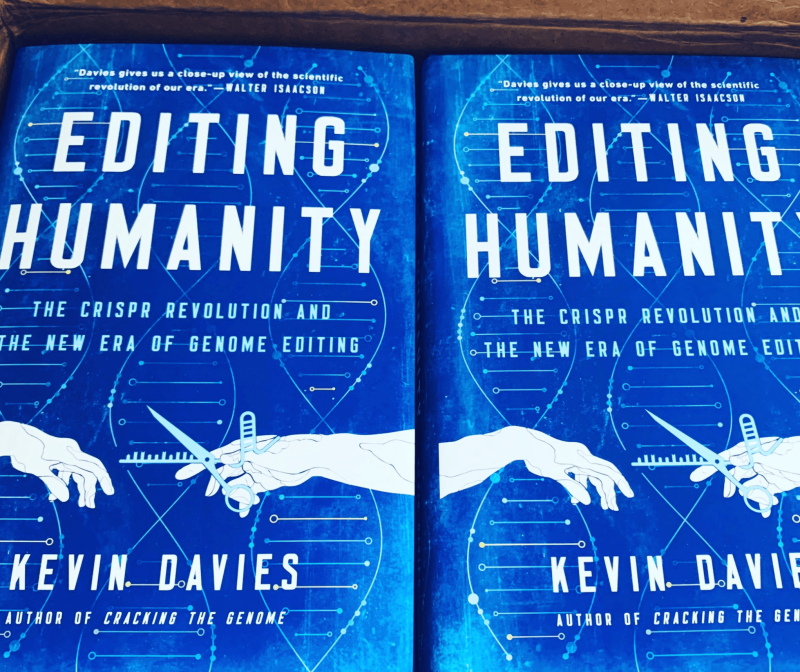“The Crispr story has arrived for the grand telling as a miracle of our age,” the [MIT Technology Review announced in July 2019]. “The proof? At least four popular, mass-market books about the DNA-snipping technology are underway.”
…
And now, deep in the pandemic, the first of the four promised ones — “Editing Humanity: The CRISPR Revolution and the New Era of Genome Editing,” by [biochemist and founding editor of Nature Genetics] Kevin Davies — has finally arrived.
Davies lays out how Crispr could become an economic giant. Millions of people suffer from diseases that are the result of inheriting dangerous mutations. People with sickle cell anemia, for example, inherit two faulty genes for hemoglobin, the oxygen-ferrying molecule in red blood cells. After many decades of research, doctors have no cure.
…
Crispr offers a new possibility: Remove the bone marrow stem cells that give rise to red blood cells, erase the mutation in them that causes sickle cell anemia, and put them back in a patient’s body. In theory, they should produce healthy red blood cells and cure the disease. This scenario is no longer theory: Volunteers with sickle cell anemia have had their cells edited in clinical trials, and it’s entirely possible that the treatment may be approved for general use in the next few years.
“The term ‘Holy Grail’ is overused in science,” Davies writes, “but if fixing a single letter in the genetic code of a fellow human being isn’t the coveted chalice of salvation, I don’t know what is.”
[Editor’s note: The book can be purchased on Amazon or at Simon and Schuster.]































